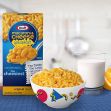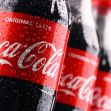The Campbell’s Company is facing a proposed class action in federal court in Brooklyn, New York, alleging that the food manufacturer misled consumers by labeling its Cape Cod Kettle Cooked Potato Chips as containing “No Artificial Colors, Flavors or Preservatives.” The lawsuit, filed on October 23, claims that despite those assurances, the chips contain synthetic citric acid, an ingredient commonly used in packaged foods to enhance flavor and extend shelf life.
Brooklyn resident Rozaliya Ripa filed the suit on behalf of consumers across the country, arguing that Campbell’s labeling is deceptive and designed to appeal to people seeking natural products. She states that she purchased the chips from a Stop and Shop supermarket in New York after relying on the company’s representation that the snack contained no artificial ingredients and contends she would not have paid the same price had she known it included a synthetic substance.
The complaint argues that the “No Artificial Colors, Flavors or Preservatives” label misleads consumers into believing the chips are entirely natural. It states that the citric acid used is produced through an industrial process involving mold and chemical solvents, which the Food and Drug Administration has classified as synthetic rather than natural. The filing also cites two FDA warning letters from 2001 stating that foods labeled “all natural” should not contain citric acid.
The lawsuit was brought under New York’s General Business Law sections 349 and 350, which prohibit deceptive business practices and false advertising. These consumer protection statutes allow buyers to recover damages when product marketing misleads the public or omits material facts. The filing also includes a claim for breach of express warranty, alleging that Campbell’s promised through its packaging that the chips contained no artificial ingredients, a promise the company allegedly failed to uphold.
Lawsuits over “natural” labeling have become increasingly common as consumers pay closer attention to ingredients and product transparency. Federal regulators have not adopted a single definition of what “natural” means, leaving courts to decide whether a company’s marketing misleads the average consumer. Although citric acid occurs naturally in citrus fruits, most commercial citric acid is produced synthetically.
Campbell’s has not yet filed a response to the complaint, which remains pending in the United States District Court for the Eastern District of New York.






